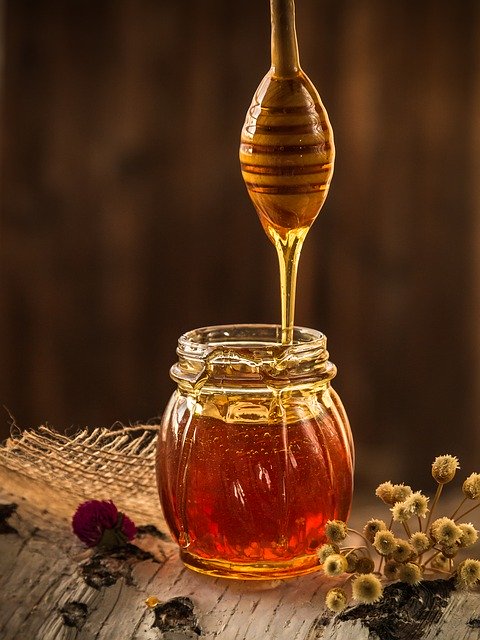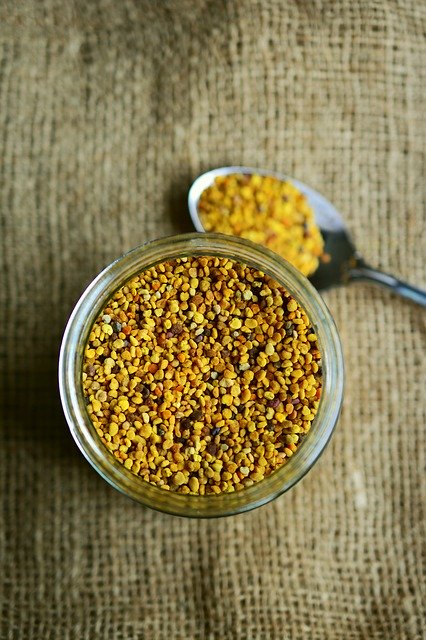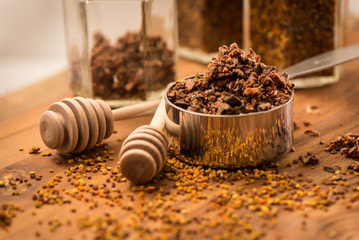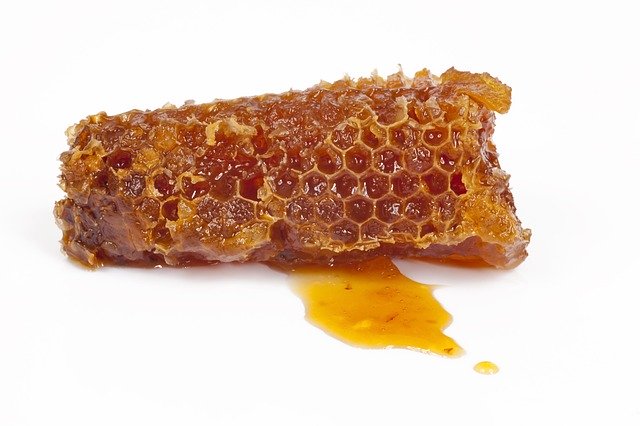The Importance of the Bee
According to urban legend, Albert Einstein once said that "If the bee disappeared from the surface of the planet, then man would have only four years to live." These words reflect the effects that a possible bee collapse will have on humans. While the timeline does not consider human ingenuity, it emphasizes that human survival is heavily linked to the presence of the bees.
Since ancient times, cave designs dating back to 18,000 BC depict the domestication of bees and the use of honey. The ancient Egyptians also moved their beehives along the Nile in order to pollinate their crops. In the 15th century, Spanish and Portuguese settlers carried bees to be spread and colonize the New World. Last but not least, native Americans called the bee "fly of the Whites."
Bee Produce
Bees produce six products that humans can use/consume that you can buy from Melissafarm's online store:
Honey: We all know honey. The bees produce it in their stomach by adding yeasts to the nectar they get from the flowers and then store it in the honeycomb cells. For one kg of honey, worker bees need to visit 2-8 million flowers from which they obtain about one kg of nectar.
Pollen: The bee collects pollen from the flowers, molds it into small spheres, and transports it to the beehive. Its excellent nutritional value is recognized as a source of nutrients and as an excellent supplement.
Propolis: It is a sticky substance that bees collect from plants, enriching it with wax, pollen, and other substances. It has healing, antimicrobial and fungicidal properties.
Honeycomb: Made of wax, which is a product secreted by the beeswax glands of the bee, it is the habitat of bees and a storehouse of honey.
Royal Jelly: It is a white substance secreted by the young worker's glands, aged 5 - 10 days, constituting the queen's exclusive food and the larvae. It is rich in nutrients and beneficial in many diseases.
8 Facts about Bees
- Bees are vital to the economy. Without them, crop pollination would cost UK farmers 1, 1.8 billion a year alone. In a world without bees, food would cost much more to produce, and our economy would suffer. In the United States alone, they pollinate $15 billion worth of crops.
- Bees can look charming or annoying. In any case, their importance is crucial: by surrounding plants in gardens, parks, and the countryside to indicate how healthy our environment is.
- From Shakespeare to J.K. Rowling, the bee has been a "star" for centuries. Pliny referred to honey as "the sweat of the heavens and the saliva of the stars," while Aristotle said it was celestial. In addition, bees have also been recognized as beneficial insects by many religious communities.
- Since 1900, Britain has lost 13 species of bees, and another 35 are considered endangered. None is protected by law. Across Europe, almost 1 in 10 wild bee species is extinct. There are a total of 25,000 different species of bees around the world. But only four of them produce honey.
- Bees can help fight cancer: A group of researchers recently discovered that bee produce, including honey and royal jelly, have drastic effects on reducing the growth and spread of cancerous tumors.
- They can predict storms: As bees use the Earth's magnetic field to navigate, the electromagnetic waves they receive also warn them of an impending storm. Knowing this, they protect themselves, and by observing their movement, we can receive the message to open our umbrellas.
- Seeds and fruits consumed by other animals, such as birds and small mammals, come from plants pollinated by bees, making them guardians of the entire food chain.
- Bees account for at least one-third of our food, as well as three-quarters of the world's crops. In Europe, 84% of cultivated plants are fertilized mainly by them. In addition to pollinated crops such as apples, almonds, strawberries, broccoli, cucumbers, and cotton, bees also pollinate seeds used to feed cattle and make dairy products.





